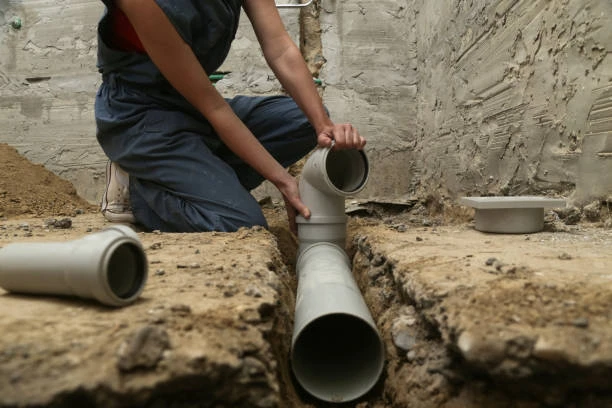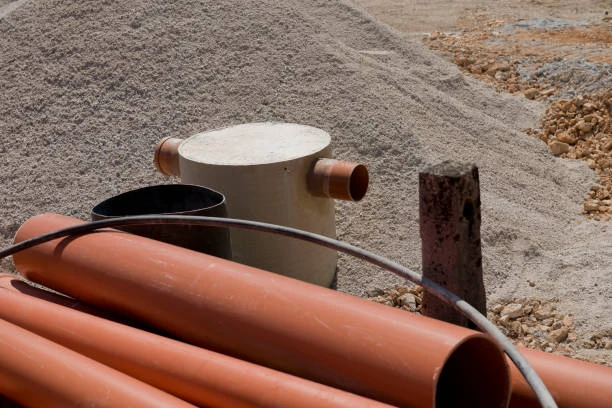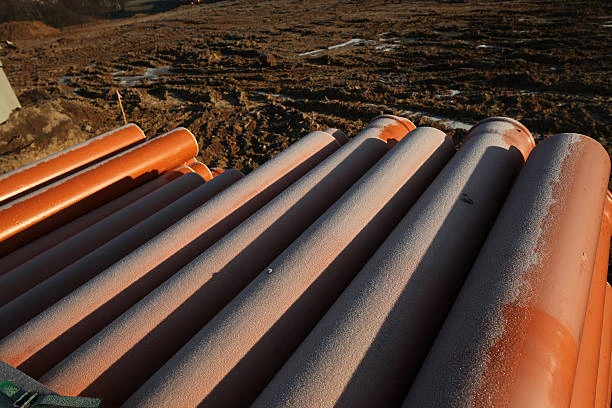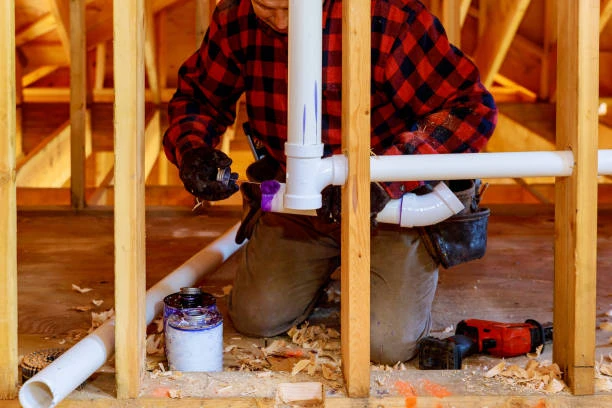Introduction
UPVC pipes and fittings have become a staple in modern plumbing systems due to their durability, affordability, and versatility. Whether for residential or commercial applications, UPVC is an excellent choice for plumbing systems, offering numerous advantages over traditional materials like copper or steel. This article explores why UPVC pipes and fittings are gaining popularity, their benefits, and why they’re becoming the go-to material for plumbing projects worldwide.
What Are UPVC Pipes and Fittings?
UPVC stands for Unplasticized Polyvinyl Chloride. It is a rigid and durable plastic material used extensively in plumbing systems. Unlike regular PVC, UPVC does not contain any plasticizers, which gives it increased strength and resistance. UPVC pipes and fittings are used to carry water, gas, and waste in both residential and commercial plumbing installations.
Why Choose UPVC Pipes and Fittings?
1. Durability and Longevity
UPVC pipes and fittings are incredibly durable. They can withstand harsh conditions, making them ideal for both indoor and outdoor plumbing applications. Unlike metal pipes, which are prone to corrosion, UPVC is resistant to rust, chemical damage, and extreme weather conditions. As a result, these pipes have a much longer lifespan—often lasting up to 50 years with proper installation and maintenance.
2. Corrosion Resistance
One of the standout benefits of UPVC pipes and fittings is their resistance to corrosion. In many plumbing systems, pipes are subjected to water, moisture, and varying temperatures, which can cause metal pipes to rust or deteriorate. UPVC does not rust or corrode, making it an ideal choice for both fresh and wastewater systems. This resistance ensures that the system remains leak-free and continues to function smoothly over time.
3. Lightweight and Easy to Handle
UPVC pipes are significantly lighter than traditional metal pipes. This makes them easier to handle during installation, reducing labor costs and installation time. The lightweight nature of UPVC also makes transportation easier and less expensive, particularly for large-scale projects. Its ease of use contributes to a more efficient installation process.
Advantages of UPVC Pipes and Fittings
1. Low Maintenance
UPVC pipes require minimal maintenance compared to their metal counterparts. Their smooth internal surface prevents the accumulation of debris and scale, which can clog up pipes and reduce flow efficiency. This means fewer repairs and cleaning are needed, making UPVC systems more cost-effective in the long run.
2. Cost-Effective
In terms of initial costs, UPVC pipes and fittings are more affordable than alternatives like copper or steel. Their low cost, combined with their longevity and minimal maintenance needs, makes UPVC an attractive option for both residential and commercial plumbing installations. UPVC pipes and fittings offer excellent value for money.
3. Chemical Resistance
UPVC is highly resistant to a wide range of chemicals. It can handle exposure to acids, alkalis, and oils without degrading or breaking down. This resistance makes UPVC pipes suitable for carrying not just water, but also wastewater and industrial fluids. The material’s chemical resistance is one of the reasons why it is so commonly used in wastewater systems, agricultural pipelines, and even in industrial applications.
UPVC Pipes vs. Other Plumbing Materials
1. UPVC vs. Copper
Copper pipes have been the go-to material for plumbing systems for years, but they come with a higher price tag. They are also prone to corrosion over time, especially when exposed to harsh water conditions. In contrast, UPVC pipes offer better corrosion resistance and require less maintenance. They are also much lighter and easier to install, making them more cost-effective than copper pipes in most cases.
2. UPVC vs. Steel
Steel pipes are strong and durable, but they can also corrode and rust when exposed to water over time. Steel pipes also require regular maintenance to prevent rust buildup. UPVC pipes, on the other hand, are completely resistant to rust and corrosion, making them a more reliable long-term solution for plumbing systems. The cost of UPVC pipes is also lower compared to steel, further adding to their appeal.
Applications of UPVC Pipes and Fittings
1. Residential Plumbing
In residential plumbing, UPVC pipes are commonly used for water supply lines, drainage systems, and sewage pipes. Their low cost and reliability make them an ideal choice for homeowners and contractors alike. From bathroom drainage systems to the main water supply, UPVC pipes ensure that water flows smoothly and safely through the home.
2. Commercial Plumbing
For commercial plumbing systems, UPVC pipes and fittings are equally popular. They are used in office buildings, shopping malls, schools, and industrial complexes to carry both clean and waste water. The material’s strength, ease of installation, and low maintenance needs make it a top choice for commercial plumbing projects.
3. Industrial Applications
UPVC pipes are also used in industrial applications, such as carrying chemicals or other fluids in factories and plants. Their chemical resistance makes them an excellent choice for industries where pipes are exposed to a wide range of chemicals. Moreover, their non-reactive nature ensures that the transported substances do not contaminate the surrounding environment.
Installation of UPVC Pipes and Fittings
1. Simple and Quick Installation
UPVC pipes are easy to install due to their lightweight nature and simple joining method. The most common method of joining UPVC pipes is through solvent welding, where a special adhesive is used to bond the pipes and fittings together. The installation process is fast, reducing labor costs and allowing for quick system setup.
2. Precise Cutting and Fitting
When installing UPVC pipes, it is important to ensure that the pipes are cut to the correct length. Using a pipe cutter or a hacksaw, the pipes are precisely cut, ensuring there are no rough edges that might interfere with the fitting process. Proper measurements and fittings are crucial to ensure the system functions properly and remains leak-free.
Maintenance of UPVC Pipes
UPVC pipes require minimal maintenance, but regular inspections are recommended to ensure there are no blockages or damage. Clean the pipes periodically to prevent the accumulation of debris. If there is a leak or crack, UPVC pipes are easy to repair. Simply replace the damaged section of the pipe or apply a repair sleeve to restore the system.

Environmental Impact of UPVC Pipes
1. Recyclable
One of the biggest advantages of UPVC pipes is their recyclability. Once a UPVC pipe reaches the end of its useful life, it can be broken down and reused in the manufacturing of new pipes. This makes UPVC a sustainable material choice, reducing its overall environmental impact.
2. Low Carbon Footprint
UPVC pipes are manufactured with a relatively low carbon footprint compared to other materials like metal. Their long lifespan and recyclability contribute to their overall environmental benefits.
Conclusion
UPVC pipes and fittings have proven themselves to be reliable, durable, and cost-effective for a wide range of plumbing applications. Their resistance to corrosion, ease of installation, and low maintenance requirements make them the material of choice for both residential and commercial plumbing systems. With their versatility, affordability, and sustainability, UPVC pipes are sure to remain a top choice for plumbing professionals and homeowners alike.
FAQs
1. Can UPVC pipes be used for hot water applications?
UPVC pipes are generally used for cold water systems. For hot water applications, CPVC pipes are a better option.
2. How long do UPVC pipes last?
UPVC pipes can last over 50 years with proper installation and maintenance.
3. Can UPVC pipes be repaired if damaged?
Yes, UPVC pipes can be repaired by replacing the damaged section or using repair fittings.
4. Are UPVC pipes suitable for underground installations?
Yes, UPVC pipes are ideal for underground installations due to their durability and resistance to corrosion.
5. Is UPVC environmentally friendly?
Yes, UPVC is recyclable and has a low environmental impact during manufacturing, making it an eco-friendly choice for plumbing systems.


















